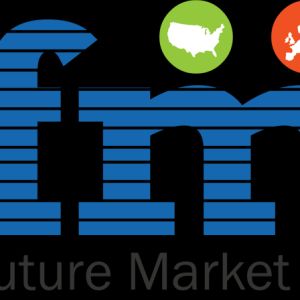Cardiac Rhythm Management Devices Market to Surpass US$ 35 billion by 2026Posted by Pareesh on February 25th, 2019 Cardiac Rhythm Management (CRM) devices perform many functions, including monitoring for arrhythmias, bradycardia pacing, cardiac resynchronisation for heart failure, defibrillation and anti-tachycardia pacing for tachyarrhythmias. In the past few decades, use of cardiac rhythm management devices has increased worldwide due to increase in life expectancy and technological developments in products such as cardiac resynchronization therapy (CRT). Increasing consumption of caffeine is the most common factor linked with abnormal heart rhythms. Furthermore, excessive consumption of red wine can lead to symptoms of arrhythmias. Substances such as automobile emissions, cigarette smoke, pollution from industrial plants, paint thinners, and propane gas can also result into problems related to cardiac rhythms. Download PDF Brochure @ https://www.coherentmarketinsights.com/insight/request-pdf/2364 However, high product price and infection risks associated with product implantation are the major concerns for manufacturers, as these are obstructing the product adoption. As per the study published by the National Cardiovascular Data Registry 2014, implantable cardioverter defibrillator infection rate has been reported to be around 1.7%. It is the third leading cause of complications occur due to CRM devices. According to a study published in Health Affairs, the average price for a dual-chamber pacemaker in Germany was US$ 1,400 in 2014 and in the U.S. it was US$ 4,200. Moreover, risks associated with product design is major concern for developers. In November 2018, Boston Scientific issued a hazard alert in Australia regarding its SQ-RX Model 1010 Pulse Generator in some of the first-generation subcutaneous implantable cardioverter defibrillator (S-ICD) systems. Future innovations in CRM products is expected to shift from transvenous leads to leadless designs with combinations of different components on a modular basis according to the function required. Moreover, CRM devices with remote controlling such as implantable cardioverter defibrillators and pacemakers can send information from the device to a portable unit, which allows the healthcare professional to monitor the patient condition at any time. Increasing incidences of heart failure and arrhythmia have fuelled rapid advancements in cardiac rhythm management (CRM) technologies eventually increasing the demand for CRM devices. According to the study published in 2016, by the Journal of the Formosan Medical Association, around 72 million people are estimated to suffer from atrial fibrillation in Asia by 2050, which is expected to be more than double the combined numbers of patients from the U.S. and Europe. Get Exclusive Sample Copy @ https://www.coherentmarketinsights.com/insight/request-sample/2364 Key players operating in the global cardiac rhythm management devices market include Medtronic plc. Abbott Laboratories, Abiomed, Boston Scientific Corporation, Biotronik Se Co Kg, Koninklijke Philips N.V., LivaNova Plc, Cardiac Science Corporation, Schiller Ag, and Zoll Medical Corporation. About Coherent Market Insights: Coherent Market Insights is a prominent market research and consulting firm offering action-ready syndicated research reports, custom market analysis, consulting services, and competitive analysis through various recommendations related to emerging market trends, technologies, and potential absolute dollar opportunity. Contact Us: Mr. Shah Like it? Share it!More by this author |


